Posted on 12/21/2021

Many years ago, vehicles were not equipped with power steering. This mechanism makes it significantly easier for drivers to turn or maneuver their wheels at lower speeds. Nowadays, most drivers take their power steering for granted. When the power steering stops functioning, you should immediately discontinue operating the vehicle until the necessary repairs are made. Signs of a Failing Power Steering Pump As long as your steering works, you should be fine to drive (right?). Well, there are a few signs that your power steering pump may show that may signal an imminent failure. Whining or groaning noise when you turn your wheel Stiffness in the steering wheel Steering wheel is overall slow to respond Squealing sound when you turn your key in the ignition Power steering fluid leak If the power steering pump is still functional and still provides some power steering capabilities, then you are okay to operate your vehicle for short trips. However, you should still schedule an ... read more
Posted on 11/24/2021

Road travel can be expensive, especially during the holidays, so saving a couple of dollars on gas can make all the difference. If you and your family are planning to travel during this holiday season, we've got a couple of tips on our sleeve that can help you get to your destination in the safest and most cost-efficient way. First, check for gas prices. According to the U.S. Energy Information Administration, the national average gas price is predicted to be $3.39 this November 2021, whereas the average was only $2.11 last November and $2.16 last December. That's a whopping $1+ difference! To find the best and lowest gas prices within your proximity, we recommend using GasBuddy.com. You can manage your expectations and budget your gas expense for your holiday trip. Travel light. According to the U.S. Department of Energy, an extra 100lbs on your vehicle could reduce your mpg by 2%. If you want to save on gas, please make sure you pack light for your trip. It would be a ... read more
Posted on 10/20/2021
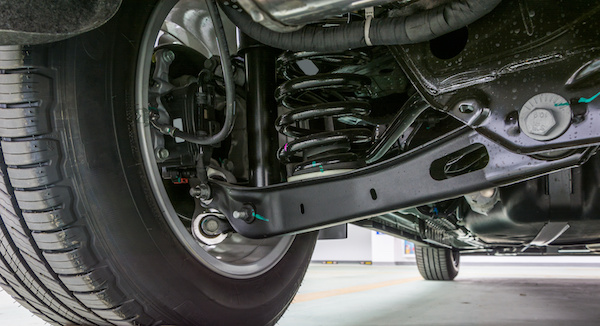
Numerous factors can influence how smoothly your automobile drives. These include wheel alignment, tire treads, tire pressure, brakes, wheel bearings, and axles. However, your suspension system has the most significant impact of all. 3 Main Parts of Every Suspension System Springs Shocks Struts Symptoms of Worn Suspension Parts Bumpy Ride If it seems like you can feel every single crack and bump on the road, then you may have a suspension issue on your hands. Vehicle Drifts or Pulls If your vehicle can't seem to go straight when you want it to, it usually means you have an alignment issue. However, misaligned wheels can ultimately affect your suspension parts as well. Uneven Tire Treads If your suspension parts are weak, you probably won't get proper traction on the road. Please seek out professional assistance whenever you notice uneven tread wear. Dipping During Stops Your vehicle may jump forward more whenever you come to a s ... read more
Posted on 9/21/2021
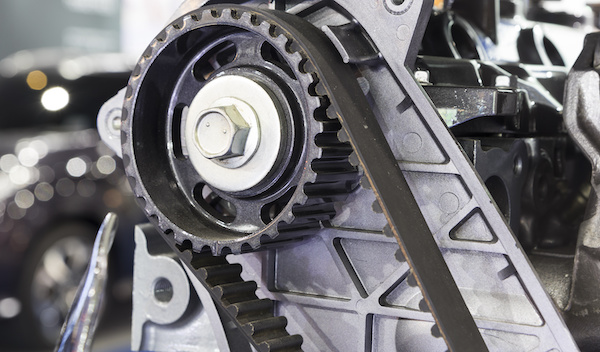
Your car's belt and hoses play a crucial role when it comes to how smooth and seamless a car runs. Like most drivers, you probably don't pay much care to the belt system since it's tucked away under the hood. However, both hoses and belts have a major supporting role in powering various vehicle systems, especially heating and cooling. Proper care on your car's belts and hoses can save you from surprises and costly repairs. Here are a select few of the belts and hoses you should know about: TIMING BELT This ribbed rubber belt helps turn your vehicle's crankshaft and camshaft and keeps them in sync. Without the timing belt, your car would not run at all. If you hear it break mid-drive, you should pull over immediately and call for assistance. If an old timing belt is left unattended, it can translate to significant and expensive engine damage. Your timing belt should be swapped out for a new one every 60,000 to 100,000 miles, depending on wear and tea ... read more
Posted on 8/23/2021
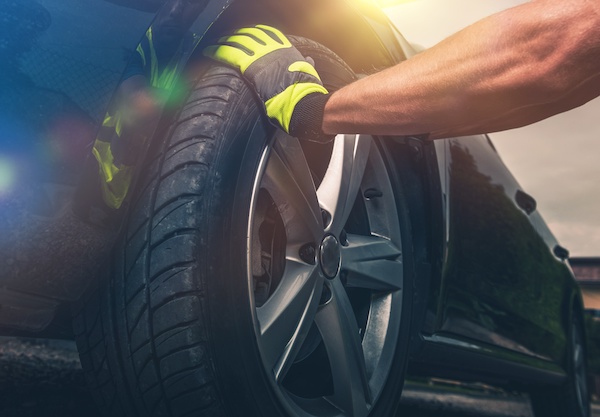
We understand that there's a lot that comes with tire maintenance, and tire rotations are just a small part of it. Getting your tires rotated will even out tire wear, which means you will achieve better handling and traction on the road. But what exactly are the "regular intervals" of tire rotations? AROUND EVERY 7,500 MILES OR 6 MONTHS. Most automobile manufacturers recommend that you get your tires rotated about every 7,500 miles or six months. However, some vehicles have exceptions, and it's always best to refer to your owner's manual for guidance. This number can vary depending on how, where, and what kind of car you drive. To make life simpler, we recommend getting into a habit of having them rotated every time you get your oil changed. What Happens During a Tire Rotation? As the name suggests, your tires get removed, swapped, and remounted. Tire rotation precisely involves the switching of your front and rear tires. It's vital to get th ... read more
Posted on 8/22/2021

Most of us depend greatly on our vehicles day in and day out to get us where we need to be. We often overlook the amazingness of our cars. Have you paused to consider all the crazy things your automobile has done for you? Here are some general cool facts to nerd over about cars! There are currently more than 1 BILLION vehicles being used around the world in 2021. According to experts, this number is expected to double or reach 2 Billion by 2040. If you drove at an average rate of 60 MPH, you could make it to the moon in less than six months. 70 million cars are produced every year! The average US driver spends 42 hours per year stuck in traffic. That's almost two days!!! Only 18% of American drivers today know how to drive a manual transmission. Did you know that 80% of an average car is recyclable? In the U.S. alone, 12 million vehicles are recycled every year. Because of this large number, automotive recycling is the 16th largest industry in the U.S. Washington D.C ... read more
Posted on 7/16/2021

A car breakdown is an ultimate nightmare for all drivers. It is dreadful and stressful, especially if you have no clue what you are doing. And if you panic in the moment, it can lead to further damage to your vehicle or even lead to costly crashes. The first thing you should do is to be calm and have a positive mindset. We've compiled a list of three things that you should never forget to do if your car breaks down mid-drive. 1.Turn on Your Hazard Lights In unprecedented times like a car breakdown, you should switch on your hazard lights. Doing this will communicate to the other drivers on the road that something is wrong and you need to get by. The flashing signal allows others to be aware of your presence and maneuver around you. 2.Get to the Side of the Road If you perceive that your vehicle is about to malfunction, you should do your best to get to the road shoulder before it stops completely. The road shoulder is the safest area to be, and being there will ... read more
Posted on 6/28/2021
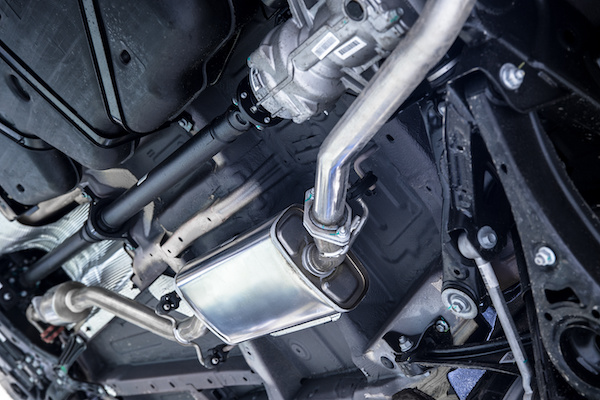
A vehicle's optimum function dramatically depends on the exhaust system. The exhaust system has the responsibility of emitting gases and other combustion elements from the automotive engine. It also reduces any unnecessary sounds generated from the combustion process, making your ride stable and smooth. The exhaust system is made up of different parts that work harmoniously to achieve its purposes. These parts include: Exhaust manifold Oxygen Sensors Catalytic converter Tailpipe Muffler Resonator If there is trouble with any of the components, the entire exhaust system is compromised. We have seen many types of exhaust system troubles, but these are the most common: MALFUNCTIONING OXYGEN SENSOR The oxygen sensors work within the exhaust system to balance the mixture of air and fuel. Their defects are somewhat common, and it affects the computer engine. An abnormal air-fuel mixture balance will lead to a clogged catalytic converter. As you will ... read more
Posted on 5/26/2021

Summer is on the horizon, and we know what that means: long days, hot sun, and road trips! With the summer months come more opportunities to get outdoors and enjoy all that this season offers. But don't forget about your car care needs. Here are 5 car care tips for summer to help protect your vehicle from wear and tear during these warmer months. Load Up Your Car With Essentials The first thing to do is load up your car with essentials to keep you on the road. We recommend bringing an emergency kit, water, snacks, and a first-aid kit to stay safe in any situation. And don't forget those other must-haves like jumper cables or tire jacks! Change Your Oil & Air Filter Next, change the filters in your vehicle. An air filter is essential to keep debris from entering the engine, while an oil change will help decrease friction in your engine and make it run more efficiently. Check Your Tire Pressure Another thing you don't want to forget is to check your tire pressure. T ... read more
Posted on 4/26/2021
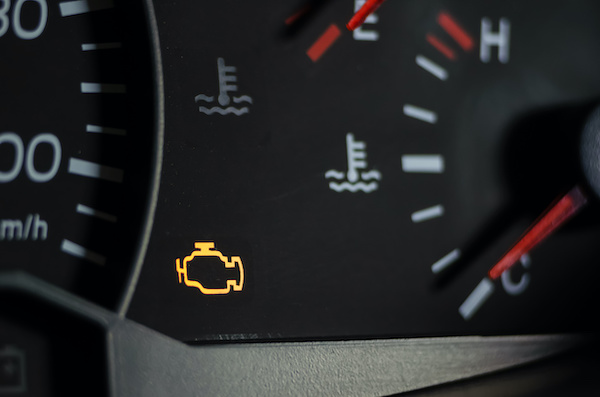
Virtually every driver on the planet has experienced a steady check engine light going on for no obvious reason. In most cases, if the vehicle is still running with no apparent problem, most drivers ignore the light. There are, however, times when a check engine light is blinking and should not be ignored. Here is what either type of check engine light means. A Steady Light is a Warning A steady light means something is wrong or about to go wrong, but it is not a dire emergency. It could be something as simple as a sensor going bad, which normally is an inspection issue and nothing more. A Blinking Light is Bad In most cases, a check engine light will shine steadily, a serious reminder that something is amiss in your vehicle. If the light is blinking, however, your minor annoyance and concern just got elevated. If the check engine light is blinking, get to the nearest trustworthy mechanic you know. What a Blinking Light Means It could be overheating or an oil pressure issue. I ... read more